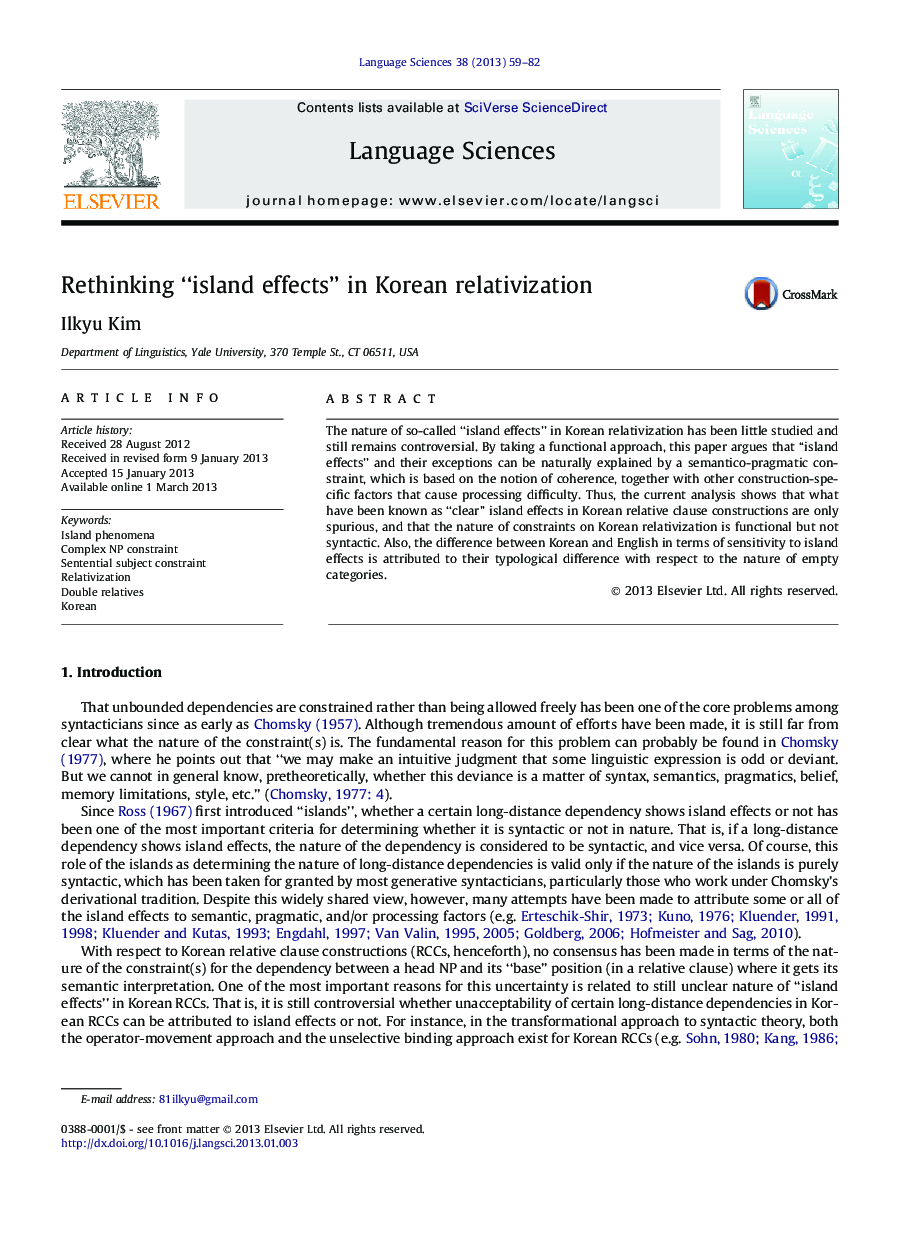| Article ID | Journal | Published Year | Pages | File Type |
|---|---|---|---|---|
| 1103211 | Language Sciences | 2013 | 24 Pages |
The nature of so-called “island effects” in Korean relativization has been little studied and still remains controversial. By taking a functional approach, this paper argues that “island effects” and their exceptions can be naturally explained by a semantico-pragmatic constraint, which is based on the notion of coherence, together with other construction-specific factors that cause processing difficulty. Thus, the current analysis shows that what have been known as “clear” island effects in Korean relative clause constructions are only spurious, and that the nature of constraints on Korean relativization is functional but not syntactic. Also, the difference between Korean and English in terms of sensitivity to island effects is attributed to their typological difference with respect to the nature of empty categories.
► The nature of “island effects” in Korean relativization still remains controversial. ► What constrains Korean relativization is not syntactic “islands”. ► Korean relativization is constrained by various functional factors. ► Crosslinguistic difference exists in terms of sensitivity to island effects. ► This difference is related to different nature of empty category across languages.
